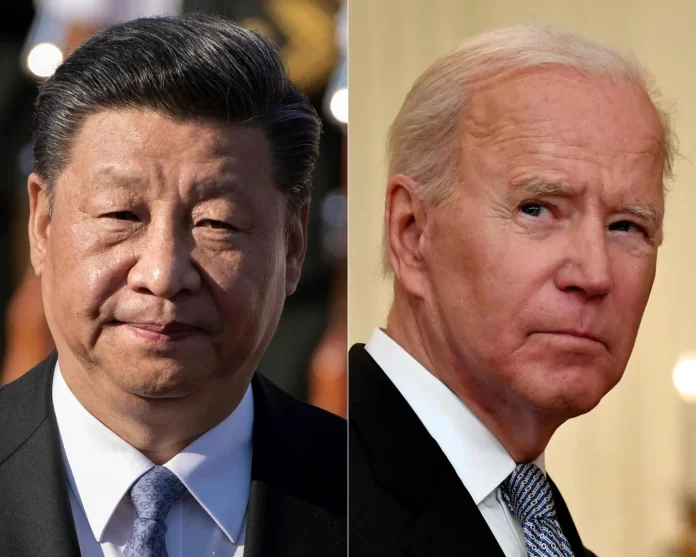The meeting, the first in-person between the two since Biden took office, will be held after the President attends a climate conference in Egypt
President Biden and President Xi Jinping of China will meet on Monday before the G20 summit in Indonesia, an encounter that Biden and his advisers said would be focused on setting expectations with the Chinese as tensions continue to rise over matters such as Taiwan and Russia’s invasion of Ukraine.
The meeting, the first in-person between the two since Biden took office, will be held after the President attends a climate conference in Egypt and makes another stop in Cambodia this week. In Cambodia, he will speak with leaders of Southeast Asian countries as part of a larger effort to shore up relationships that could help counter China’s influence in the region.
“The leaders will discuss efforts to maintain and deepen lines of communication between the United States and the PRC, responsibly manage competition and work together where our interests align, especially on transnational challenges that affect the international community,” Karine Jean-Pierre, the White House press secretary, said in a statement, using the acronym for People’s Republic of China.
READ ALSO: Iran: The Islamic Republic says it has developed a hypersonic missile
A senior administration official, who spoke on the condition of anonymity, also reinforced the President’s position, delivered during a news conference on Wednesday, that he would make no “fundamental concessions” over US support for Taiwan. China insists that Taiwan is part of its territory and cannot exist as a sovereign nation.
Biden and Xi are also expected to discuss trade, human rights and North Korea.
Setting a meeting gives Biden, a politician who believes in the power of face-to-face encounters, a chance to re-establish boundaries with a leader whom he treats more as a Cold War-era enemy than a sceptical competitor he once knew.
Since the two first met, when they were both vice-presidents over a decade ago, Xi has tightened his grip on power domestically and become more confrontational as a global adversary, even as he was more physically isolated during the coronavirus pandemic.
Original Post













